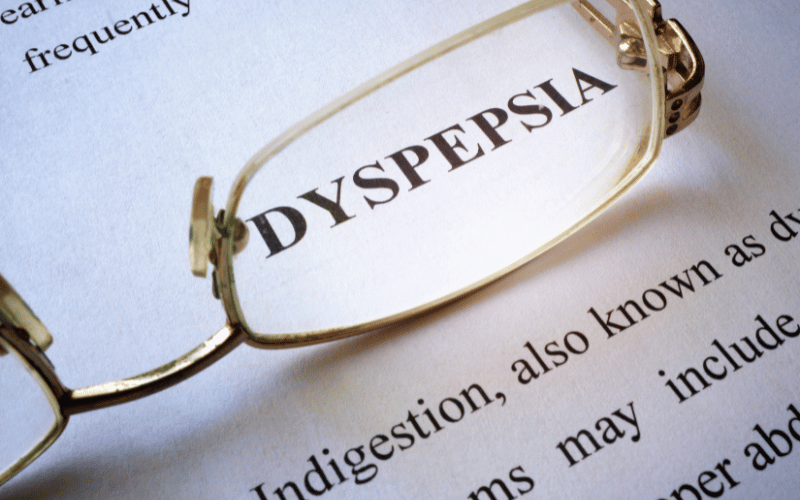Introduction
Your stomach growls, not out of hunger, but discomfort. Moments earlier, your boss dropped a last-minute project on your desk or perhaps a heated argument with a close one got the best of you. Whatever the reason, you’re now grappling with the twin demons: stress and dyspepsia. This article won’t throw big words at you or make you wade through pages of medical jargon. Instead, it’s about making a simple connection – the one between your gut and your emotions. So, if you’re ready to understand why a tough day at work might end in a bout of indigestion, let’s embark on this journey together.

We’ve all felt it – that tightness in the pit of our stomach when facing an uncomfortable situation or that unexpected pain after a particularly hectic day. But have you ever stopped to think about why? Why does our gut react almost immediately to our emotions? The answers lie in the intricate connection between our brain and our gut – a relationship so deep that it has its term, the gut-brain axis.
For some, it’s just occasional discomfort, perhaps after a nerve-wracking presentation or an unforeseen confrontation. But for others, it’s a more constant companion, following them around as they navigate daily stressors. The truth is, while many see stress as merely a psychological phenomenon, it has profound physical manifestations. And often, the first casualty of this psychological-physical war is our digestion, especially presenting as dyspepsia or indigestion.
It’s easy to dismiss dyspepsia as just another fancy term for an upset stomach. After all, who hasn’t experienced it? But when stress enters the equation, what was once an occasional discomfort can quickly escalate into a chronic issue. Moreover, the cyclic relationship between stress and indigestion means one often feeds the other, creating a vicious loop that’s hard to break. Understanding this cycle, and more importantly, knowing how to manage it, is vital.
But let’s be clear – not every upset stomach can be attributed to stress. Our bodies are complex, and sometimes, indigestion can be a result of other underlying conditions or dietary choices. However, understanding and acknowledging the undeniable role stress plays can be a game-changer. And that’s what we aim to do here. With that stage set, let’s delve deeper into the 10 essential facts about stress and dyspepsia.
Fact 1: The Direct Link Between Stress and Dyspepsia

The moment you’re under stress, your body begins its ancient dance of defense. It’s a hardwired response that dates back to our primal days when running from predators was a common occurrence. What this results in is a surge of hormones, primarily cortisol. Now, in moderate amounts, cortisol is okay, but under prolonged stress, its consistent release can lead to an increased production of stomach acid.
A surge in stomach acid may sound benign, but it’s not just about the stomach. This acid interacts with the walls of the stomach, which is all right in ordinary circumstances. However, under stress, with excessive acid, this interaction becomes a ground for dyspepsia or indigestion. It’s like a party where too many guests have turned up. The room becomes congested, chaotic, and ultimately uncomfortable.
Then, there’s the lining of the stomach to consider. This lining is tough, designed to handle the potent stomach acid. However, under constant exposure, even this robust lining can start to feel the strain, leading to inflammation and discomfort. It’s a direct consequence of our body’s response to stress, but sadly, many don’t realize this connection.
Another element that accentuates this link is the reduction in blood flow to the stomach when stressed. Blood carries essential nutrients and oxygen. A reduced flow means the stomach isn’t at its optimal health, making it even more susceptible to the increased acid production. This combination can lead to some pretty unpleasant sensations.
Finally, it’s worth noting that this isn’t just a one-off event. Every stressful episode can trigger this cascade of reactions. Over time, if not managed, the constant onset of dyspepsia can become a chronic problem, with both immediate and long-term implications for our digestive health. (1)